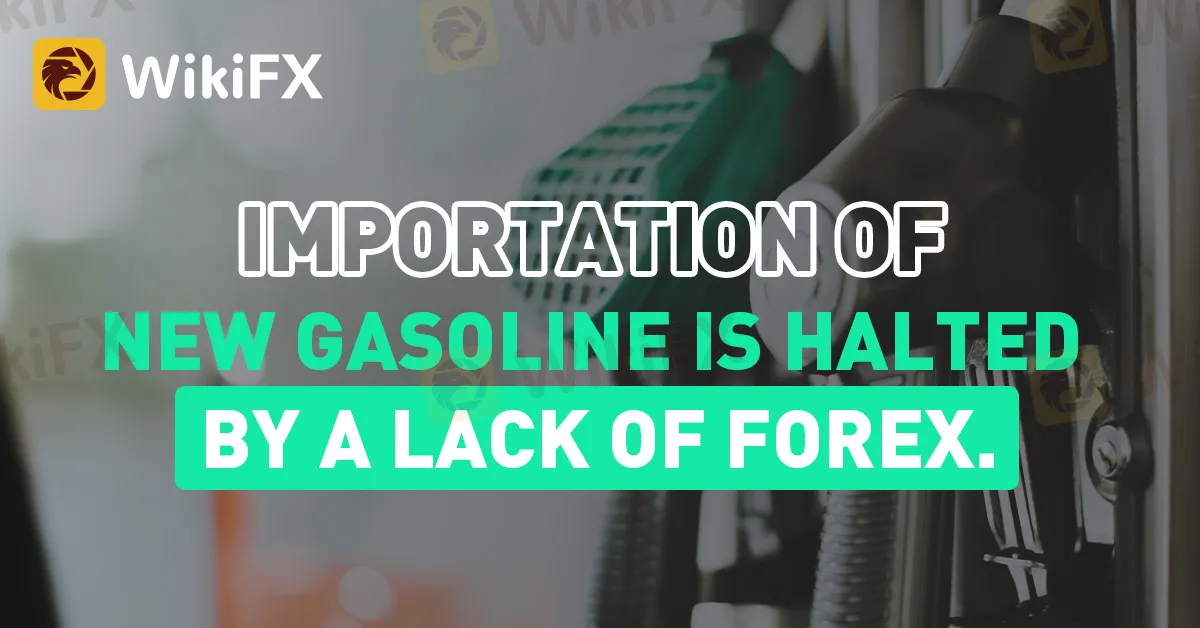简体中文
繁體中文
English
Pусский
日本語
ภาษาไทย
Tiếng Việt
Bahasa Indonesia
Español
हिन्दी
Filippiiniläinen
Français
Deutsch
Português
Türkçe
한국어
العربية
IMPORTATION OF NEW GASOLINE IS HALTED BY A LACK OF FOREX.
Abstract:The prospect of importing new gasoline may have been crushed, as research showed that oil marketers who have been granted permission to import fuel are currently experiencing trouble getting foreign exchange.

The prospect of importing new gasoline may have been crushed, as research showed that oil marketers who have been granted permission to import fuel are currently experiencing trouble getting foreign exchange.
Three of the downstream enterprises that were cited had not yet obtained foreign currency to pay for goods, according to sources familiar with the situation.
Six downstream companies have received importing permits from the Nigerian Midstream and Downstream Petroleum Regulatory Authority.
Only three of them would start importing this month, though: Eternal Plc, Emadeb Energy Services Limited, and Asharami Energy.
However, sources indicated that despite having licenses, the enterprises would not be able to import fuels because of high exchange rates and a lack of foreign currency.
That's not accurate. Nowadays, due to foreign exchange, buying is more profitable than importing. When questioned if they had started importing gasoline, one of the sources told The PUNCH that it was approximately N775/$ as of the most recent check.
A need for clarity exists. We need to know if we're importing or if we're just still waiting in line behind the NNPCL that is. However, the NMDPRA wants us to import. However, FX—the proverbial elephant in the room—must be addressed. Even if they're working to converge it, it would cost around $12 million to import 15KT (kilotonnes). We were taking a very long time to purchase merely $3–4 million for the base oil that we are transporting. Not even mentioning importing PMS. Right now, we obtain a PFI (Pro Forma Invoice) from PPMC and pay them. Therefore, we are unable to import till FX is available.
The three oil marketers made an announcement on June 15 that they will begin importing petroleum products this month. According to Farouk Ahmed, the Chief Executive Officer of NMDPRA, the oil marketers have agreed to improve their cooperation with security organizations in order to make the supply and distribution of petroleum products more seamless.
Three oil marketers have already announced that they will begin bringing in petroleum goods in July of this year, according to Ahmed.
Later, Ahmed claimed that there were now six firms.
Six businesses have indicated that they plan to import petroleum in July. Of course, everyone else is free to import in December, November, or whenever, but the NMDPRA CEO said that as of this morning, there were six parties who had expressed interest in bringing in fuel in July.
Asharami, Emadeb, and Eterna did not comment on the development.
Additionally, our correspondent learned that foreign oil refineries like Glencore, Vitol, Moko, and others have begun to supply products to Nigerian marketers on credit as a result of the nation's declining gasoline consumption.
“Low patronage has forced companies like Glencore, Vitol, and Moko to start chasing us and offering to sell on credit for the first time because they know the game is changing,” said the executive. There are several changes. They did not extend us financing when the price was approximately $2.7 million. Why now, he questioned, has the price increased to $9.3 million?
No importer wants to take the chance of losing money because of the high exchange rate, the source continued.

Disclaimer:
The views in this article only represent the author's personal views, and do not constitute investment advice on this platform. This platform does not guarantee the accuracy, completeness and timeliness of the information in the article, and will not be liable for any loss caused by the use of or reliance on the information in the article.
Read more

The Daily Habits of a Profitable Trader
Every professional trader follows a structured approach to ensure they are well-prepared, disciplined, and able to seize opportunities with confidence. Whether you are a seasoned investor or an aspiring trader, adhering to a robust daily checklist can significantly enhance your performance. Use this checklist to check if you are a qualified trader

How a Housewife Lost RM288,235 in a Facebook Investment Scam
A 47-year-old housewife in Malaysia recently fell victim to an online investment scam, losing a substantial sum of RM288,235 after engaging with a fraudulent scheme advertised on Facebook.

A Trader’s Worst Mistake: Overlooking Broker Reviews Could Cost You Everything
In today’s digital age, reviews influence nearly every decision we make. When purchasing a smartphone, television, or home appliance, we pore over customer feedback and expert opinions to ensure we’re making the right choice. So why is it that, when it comes to choosing an online broker where real money and financial security are at stake many traders neglect the crucial step of reading reviews?

Interactive Brokers Launches Forecast Contracts in Canada for Market Predictions
Interactive Brokers introduces Forecast Contracts in Canada, enabling investors to trade on economic, political, and climate outcomes. Manage risk with ease.
WikiFX Broker
Latest News
TradingView Brings Live Market Charts to Telegram Users with New Mini App
Trump tariffs: How will India navigate a world on the brink of a trade war?
Interactive Brokers Launches Forecast Contracts in Canada for Market Predictions
Authorities Alert: MAS Impersonation Scam Hits Singapore
Stocks fall again as Trump tariff jitters continue
INFINOX Partners with Acelerador Racing for Porsche Cup Brazil 2025
Regulatory Failures Lead to $150,000 Fine for Thurston Springer
April Forex Trends: EUR/USD, GBP/USD, USD/JPY, AUD/USD, USD/CAD Insights
March Oil Production Declines: How Is the Market Reacting?
Georgia Man Charged in Danbury Kidnapping and Crypto Extortion Plot
Currency Calculator







